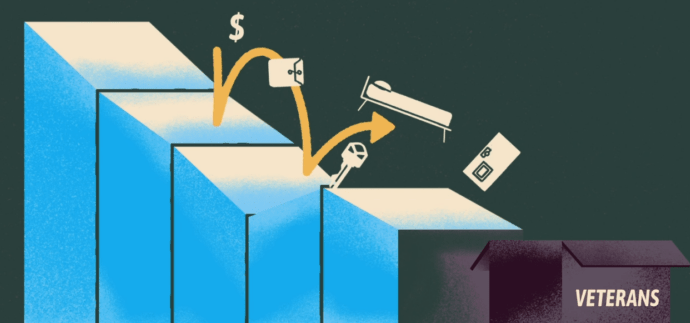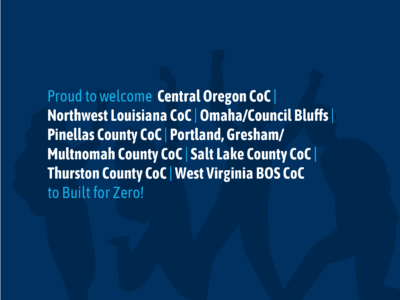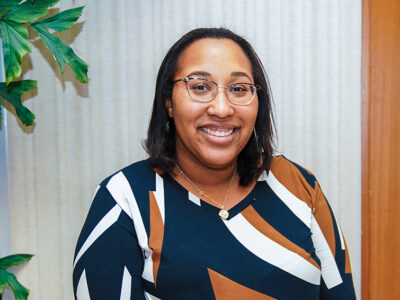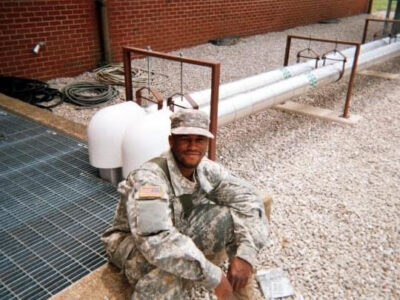Throughout the 2022-2023 Action Cycle, BFZ community teams have been participating in one or more cohorts designed with specific goals and led by expert coaches. Read on to learn more about the work being done in the Veteran Breakthrough Cohort!
What is the Veteran Breakthrough Cohort about?
Veteran Breakthrough is a six-month cohort developed in partnership with the Department of Veterans Affairs (VA) to support community teams in achieving their local targets related to the VA’s Permanent Housing Placement National Challenge to House 38,000 Veterans in 2022. Teams will increase positive exits out of their systems by testing data-driven strategies aimed at quickly, and stably, moving veterans experiencing homelessness into permanent housing.
Coaching support for this cohort is provided by Shawn Liu, Director of Communications at the VHA Homeless Programs Office, and Emma Beers, Senior Policy Analyst at Homebase.
Communities in Veteran Breakthrough are:
- Learning how to run and prioritize rapid tests of change related to their local goals
- Discovering best practices for updating and reviewing data regularly
- Exploring the fundamentals of centralizing their housing search and property engagement efforts, and prioritizing unit vacancies
Cohort Launch Date: August 2022
One word that best describes the Veteran Breakthrough Cohort: Partnership
Meet two of the coaches for the Veteran Breakthrough Cohort!
Shawn Liu
Director of Communications,
Veterans Health Administration Homeless Programs Office
Pronouns: he/they

Q: Can you tell us more about your position working with Built for Zero?
A: I am the Director of Communications for the VHA Homeless Programs Office, where I’m responsible for developing strategic communications that enhance efforts to prevent and end homelessness among veterans and their families. I act as a liaison and point-of-contact as part of Built for Zero’s formal partnership with the VA.
In addition to my communications work, I support the development and implementation of national policies, plans, guidelines, and technical assistance for a variety of VA homeless programs and initiatives, including the goal of providing 38,000 permanent housing placements to homeless veterans in 2022. In my thirteen years at the VA, my work has also included integrating local VA medical centers into their community’s coordinated entry systems, identifying and disseminating strong and innovative practices across program operations within VA’s homeless programs.
I also have a Bachelor of Arts in Psychology degree from Florida International University, a Master of Social Work degree from Florida State University, and I’m a Licensed Clinical Social Worker with the State of Florida.
Q: What are you most excited for this cohort to do?
A: I’ve been really excited to see how this Intervention has really centered the local VA medical center staff’s experience in the improvement work. Over the last three months of working with this cohort, we found that there were a lot of adjustments that needed to happen to do that.
This has included more abstract things like figuring out shared language or reconceptualizing how we think of performance outcomes and data. But it also included smaller logistical things like populating calendars with invites and shifting away from Google drive because VA can’t access it. All of this wasn’t as easy as we anticipated, so it required more intentionality and conscientiousness about those culture shifts. It was not as easy as we thought!
I also think that people often have the unfortunate impression that this improvement work in Built for Zero is extra, optional, and not the actual work of ending veteran homelessness — and I couldn’t disagree more.
Our VA teams have so many different priorities that it’s often hard to see how they overlap or synergize. However, this particular intervention was specifically designed to latch onto and enhance what was going to be the main priority for all VAs across the country, which was the Secretary’s permanent housing placement goal.
Finally — I like working with Community Solutions, so the idea of doing something that centered VA excited me!
Emma Beers
Senior Policy Analyst, Homebase
Pronouns: she/her/hers
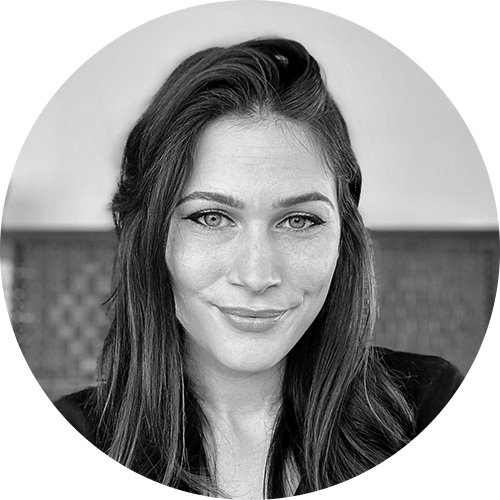
Q: Can you tell us more about your position working with Built for Zero?
A: As a Senior Policy Analyst at Homebase, I work with Continuums of Care to provide trainings, technical assistance, and support in evaluating and addressing needs and goals according to evidence-based best practices. Before joining Homebase, I worked as a Strategy Lead at Community Solutions supporting communities within Built for Zero by creating opportunities for peer-to-peer sharing, skill development, learning system management, and best practice scale and adoption.
Prior to my role with Built for Zero, I worked in the Southeast Tennessee Continuum of Care (TN-500) serving in a variety of roles from unsheltered outreach and coordinated entry management, to database administration and oversight of system performance. While serving in Southeast Tennessee, I led community-wide efforts to achieve the USICH Federal Benchmarks for effectively ending veteran homeless in Chattanooga, Tennessee, in March of 2017, and Community Solutions’ functional zero definition for the veteran subpopulation in the 11-county region in October of 2019. I currently live in Atlanta, GA and hold a BA in Music Theory from Covenant College, and an MPA from the University of Tennessee.
Q: What are you most excited for this cohort to do?
A: What’s been most exciting is getting to work in a really new way with the Department of Veterans Affairs. It’s been wonderful to have Shawn and others from the VA on the calls with us to answer questions from community team members in real-time and to help clear barriers they have to improving their systems.
Having that support behind the work we do in Built for Zero around system improvement feels really good. It’s also been super exciting to see how engaged everyone has been. I’m so grateful to have teams that are really dedicated to this goal.
Every month, we come together for our small group calls and teams share what they’ve tested since the last time we spoke. And each time, we see new ideas coming out and find out that people have made progress. It’s all contributed to everyone being on track to meeting their goals — teams are consistently increasing their housing placements.
It feels really exciting to see the direct correlation of practicing PDSA (“Plan-Do-Study-Act”) cycles and being really diligent about that work. Peer-to-peer sharing is something a lot of case managers don’t have the opportunity to do or have the time carved out for, but by building that in this cohort, we’re seeing it’s been very effective at generating movement within their systems.
